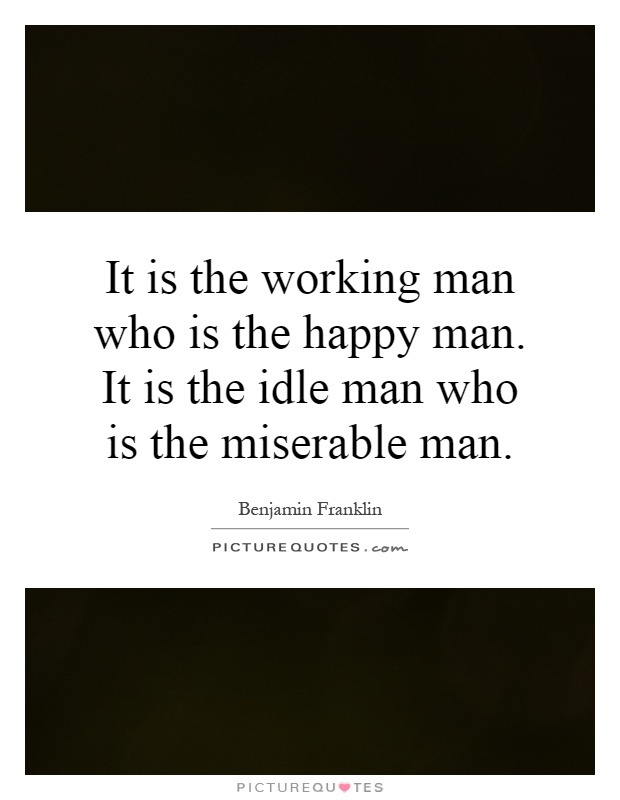It is the working man who is the happy man. It is the idle man who is the miserable man

It is the working man who is the happy man. It is the idle man who is the miserable man
Benjamin Franklin, one of the founding fathers of the United States, was a firm believer in the value of hard work and industry. He famously said, “It is the working man who is the happy man. It is the idle man who is the miserable man.” This statement reflects Franklin’s belief that a life of purposeful labor leads to fulfillment and contentment, while a life of idleness leads to dissatisfaction and unhappiness.Franklin himself was a shining example of the virtues of hard work. From a young age, he was industrious and ambitious, constantly seeking to improve himself and his circumstances. He worked as a printer, writer, inventor, and statesman, always striving to make a positive impact on the world around him. His famous autobiography is filled with anecdotes of his dedication to self-improvement and his relentless pursuit of success.
Franklin understood that work not only provides a means of earning a living but also gives meaning and purpose to life. He believed that through hard work, individuals could achieve personal growth, financial stability, and a sense of accomplishment. In his view, idleness was not only wasteful but also detrimental to one’s well-being. Without the structure and discipline that work provides, individuals are prone to boredom, apathy, and despair.
Furthermore, Franklin recognized the social benefits of a strong work ethic. He believed that a society of industrious individuals would be more prosperous, stable, and harmonious than a society of idle individuals. By contributing to the common good through their labor, working men could build a better future for themselves and their communities.












 Friendship Quotes
Friendship Quotes Love Quotes
Love Quotes Life Quotes
Life Quotes Funny Quotes
Funny Quotes Motivational Quotes
Motivational Quotes Inspirational Quotes
Inspirational Quotes